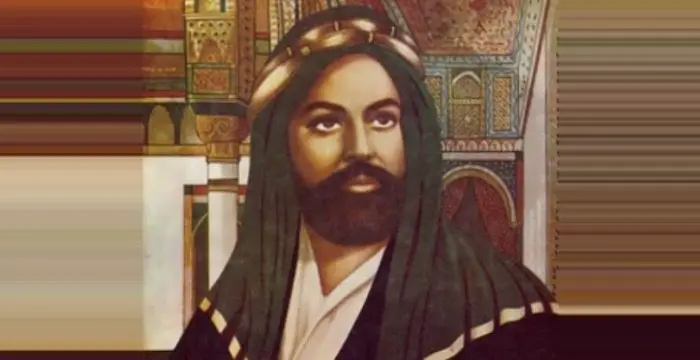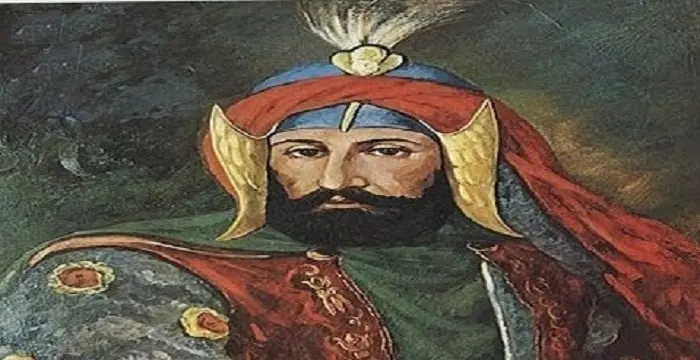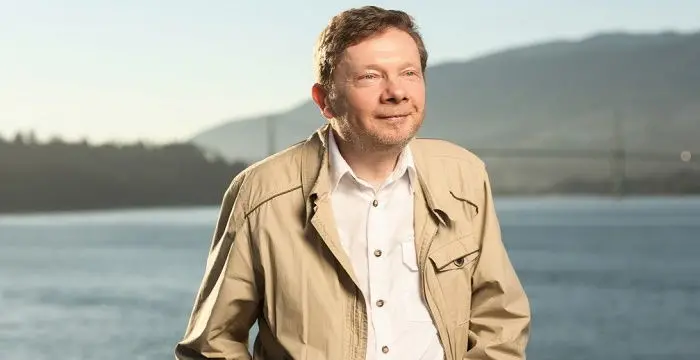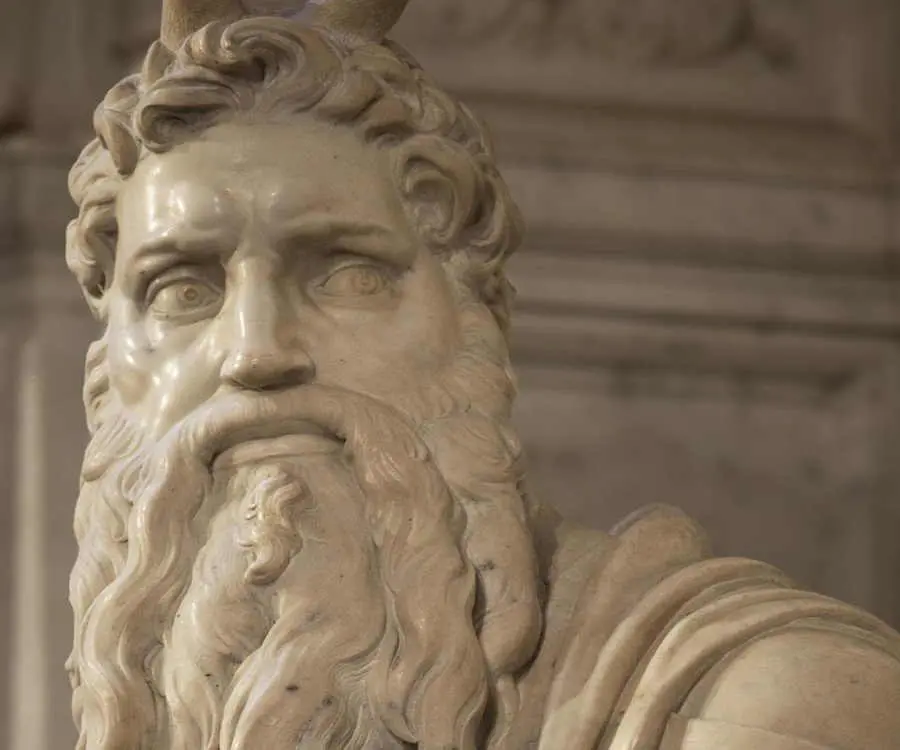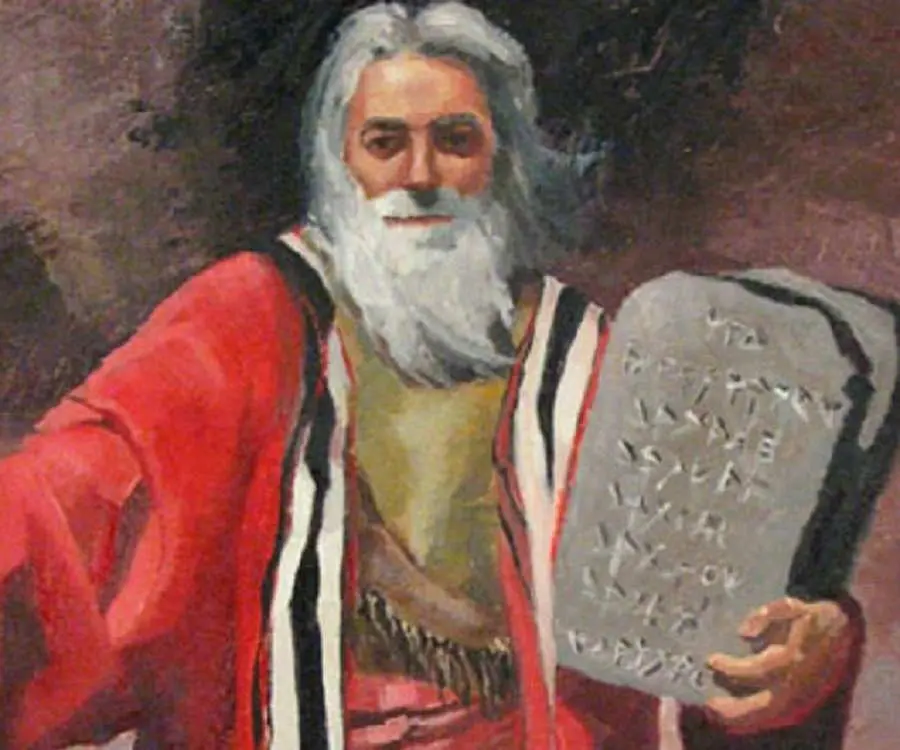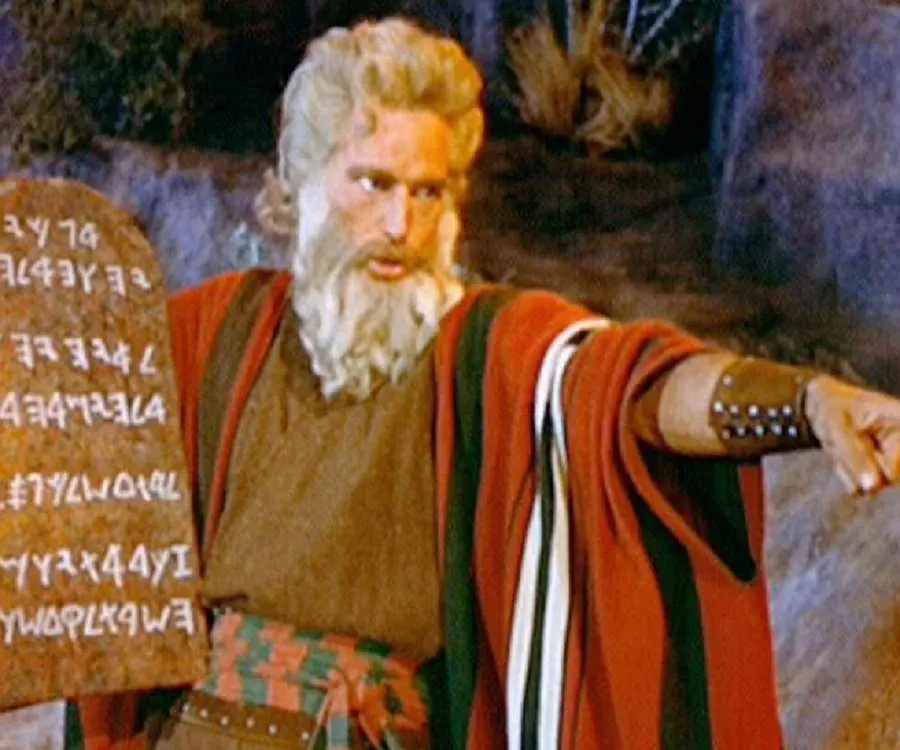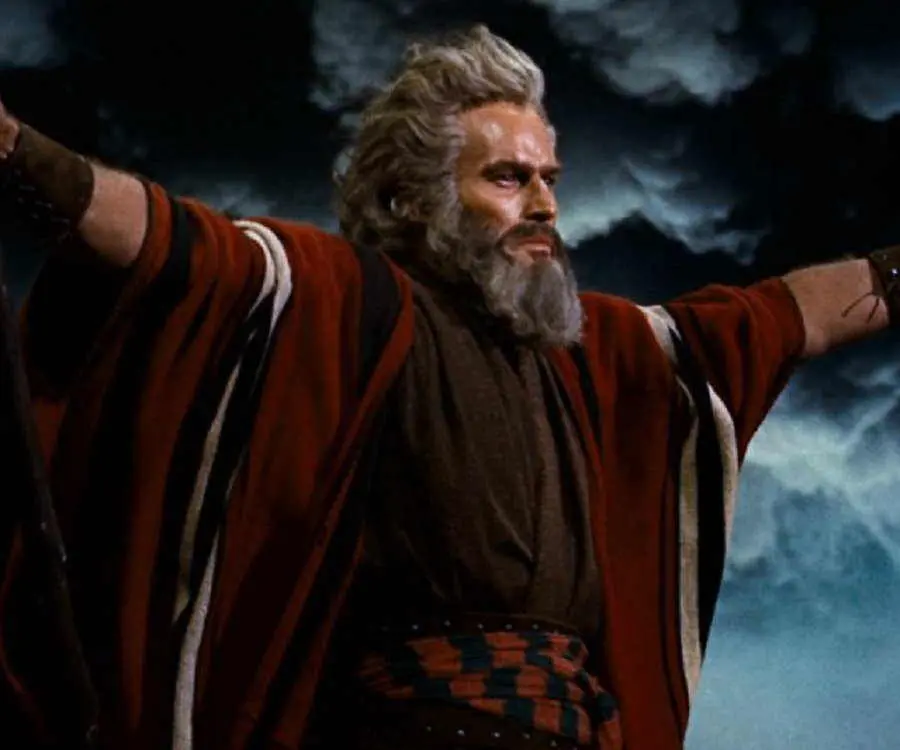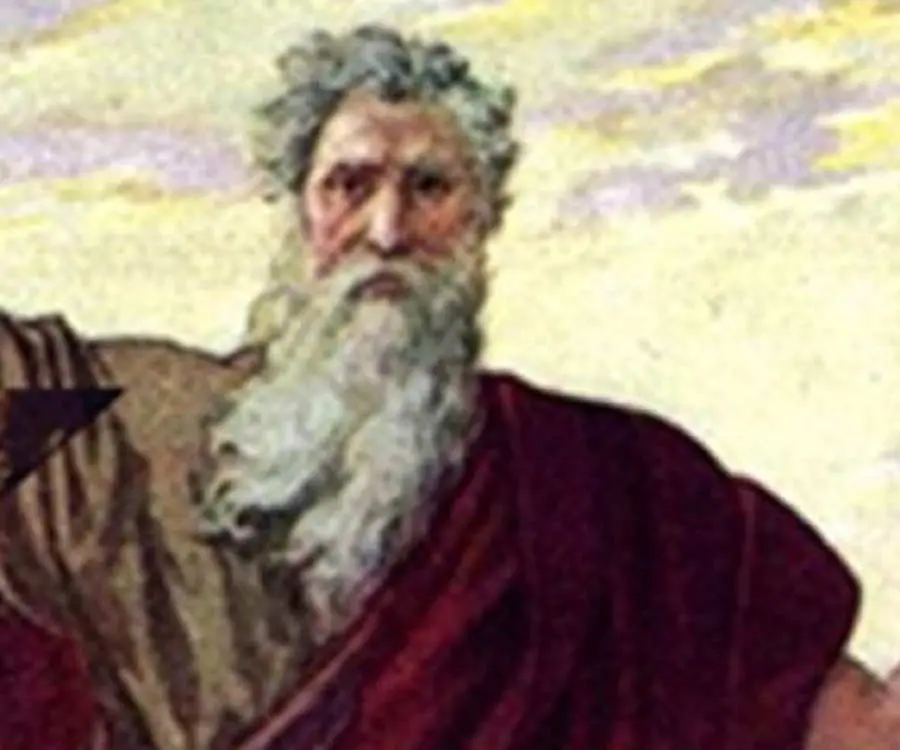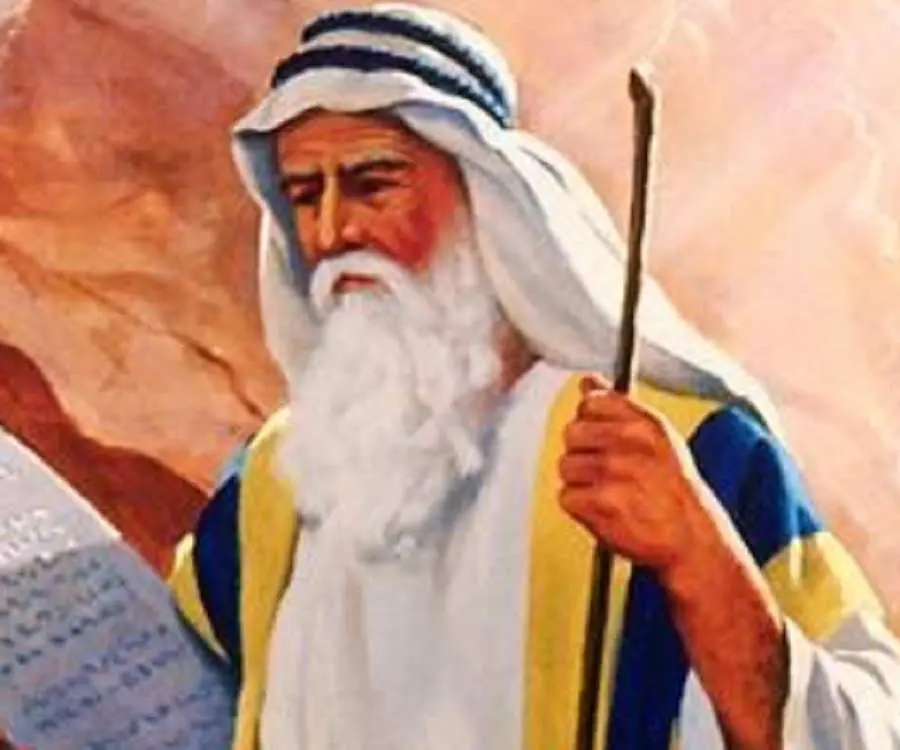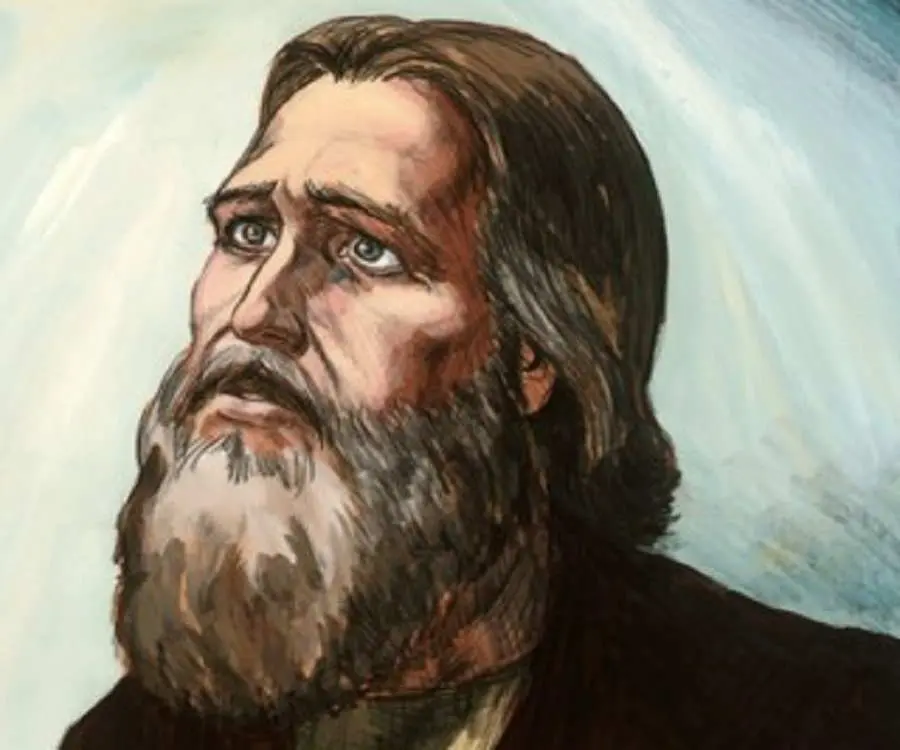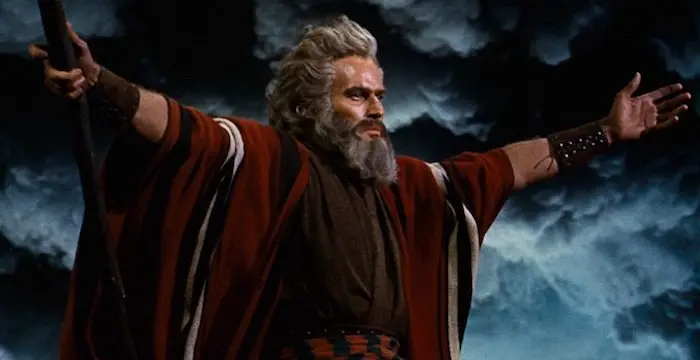
Moses - Lawgiver, Career and Childhood
Moses's Personal Details
Moses is regarded as the most prominent Hebrew religious leader of the ancient era
| Information | Detail |
|---|---|
| Birthday | 1391 BC |
| Nationality | Egyptian, Jordanian |
| Famous | Historical Personalities, Spiritual & Religious Leaders, Hebrew Religious Leader, Lawgiver, Prophet, Religious Leaders, Spiritual |
| Spouses | Zipporah |
| Siblings | Aaron, Miriam |
| Childrens | Eliezer, Gershom |
| Birth Place | Land of Goshen |
| Born Country | Egypt |
| Religion | Judaism |
| Gender | Male |
| Father | Amram |
| Mother | Jochebed |
| Born in | Land of Goshen |
| Famous as | Hebrew Religious Leader, Lawgiver, Prophet |
// Famous Spiritual
Prophet Muhammad
Prophet Muhammad was the founder of Islam, one of the most widespread religions in the world. This biography profiles his childhood, life story, achievements and more.
Murad IV
Murad IV was one of the mighty Sultans in the history of the Ottoman Empire. This biography profiles his childhood, family, accession, rule, administration and timeline.
Eckhart Tolle
Eckhart Tolle is a well-known spiritual leader, and author. Check out this biography to know about his childhood, family, personal life, spiritual awakening, etc.
Moses's photo
Who is Moses?
Moses, famed as the ‘Law Giver of Israel’, was born towards the end of fourteenth century BCE in Egypt. Considered a prophet by all Abrahamic religions, he has a special place in Judaism, where he is referred as Moshe Rabbenu or ‘Moses our Teacher’. Born into a family of Hebrew slaves, he was raised in the Egyptian royal household as the son of a princess, receiving the best education. Later, he came to know about his origin and fled to the desert of present day Arabian Peninsula after killing an Egyptian slave master. There God revealed Himself to him and told him to deliver His chosen people and take them to the Promised Land. He, therefore, returned to Egypt and led an ever-complaining horde of ex-slaves out of Egypt into the desert of Arabian Peninsula. There, at the Sinai Mountain, he received the Ten Commandments from the Lord. He later instituted number of laws and customs, based on the Commandments, thus forming the basis of Hebrew culture. Once his task was done, he handed over his responsibilities to Joshua and went up the Mount Nebo, where he breathed his last.
// Famous Religious Leaders
Prophet Muhammad
Prophet Muhammad was the founder of Islam, one of the most widespread religions in the world. This biography profiles his childhood, life story, achievements and more.
Murad IV
Murad IV was one of the mighty Sultans in the history of the Ottoman Empire. This biography profiles his childhood, family, accession, rule, administration and timeline.
Eckhart Tolle
Eckhart Tolle is a well-known spiritual leader, and author. Check out this biography to know about his childhood, family, personal life, spiritual awakening, etc.
Childhood & Early Years
As is the case of all ancient figures, there is a controversy about the year in which Moses was born; different scholars having different opinion on that. But if we go by accepted tradition, Moses was born in Egypt sometime in 1391-1392 BCE.
Both his parents, Amram and Jochebed (also known as Yocheved), were Levites. He was the youngest of their three children, having a sister called Miriam, elder to him by seven years and a brother called Aaron, elder by three years.
According to tradition, the Israelites came to Egypt some 400 years before the birth of Moses. Initially, they earned their living by working independently; but later were turned into slaves by the Pharaoh, whose identity is yet to be fixed. In spite of that, their number continued to grow.
By the time Moses was born, the community had become quite large. The Pharaoh, fearing that they might join his enemies, ordered that all new born Hebrew male children must be cast in the River Nile to be drowned.
Jochebed, not having the heart to kill her son, hid him for the first three months. Thereafter, she placed him in a bulrush basket, made watertight with slime and pitch and floated it down the Nile while Miriam kept a watch from afar.
Soon the basket was stuck in bulrushes growing near the riverbank. By and by, the Pharaoh’s daughter, identified by different text as Bithiah or Thermuthis, came to bathe at the riverbank. Married to Mered from the Tribe of Judah, she did not have any child of her own.
On hearing a baby’s cry, she started looking around and found an infant lying in a weed basket. Moved by compassion, she took him home. According to some text, as advised by Miriam, who was hovering nearby, Bithiah appointed Jochebed as his wet nurse.
Declaring him to be her own child, the princess named the infant, Moses or Moshe, which in Hebrew meant ‘drew out of the water’. However, some scholars believe the name has been derived from Egyptian ‘mose’, meaning ‘is born’.
As a son of a princess, Moses grew up among the splendor of Egyptian royal court, having the best of everything. His foster mother made sure that he received the best of education. From his later accomplishment, it is evident he had deep knowledge about religious, civil and military matters.
As he grew up, he somehow came to know about his Hebrew origin. Curious, he began to visit Hebrew quarters, growing sympathy for the plight of his people, who had to labour under most inhuman condition.
In the Wilderness
One day, when he was around 25 years old, Moses witnessed an Egyptian slave master mercilessly beating his Hebrew slave; almost to his death. Unable to control himself, he killed the Egyptian after making sure nobody saw him doing so. But the next day he had a jolt.
Finding two Hebrews fighting, he pulled them back and then asked the offender the reason for the fight. At this, the offender asked who made Moses a prince and a judge over them and if he intended to kill him as he had killed the Egyptian.
Moses realized that if these people had come to know about his secret so could the Pharaoh. Fearing punishment, he fled to the desert of Midian, possibly in Arabian Peninsula, bypassing series of fort in Egypt’s eastern border before moving in a southeast direction through a bleak and desolate country.
At Midian, while resting by a well, he found seven young girls, who happened to be the daughters of a Midianite priest called Jethro, watering their flock. But, before they were finished, other shepherds came and tried to drive them away. Moses intervened on behalf of the girls and defeated them.
First Revelation
Moses now stayed back to tend Jethro’s flock. One day, while tending his flock on Mount Horeb, Moses noticed a bush, which was burning continuously without being consumed. As he went forward, he heard a voice, telling him to remove his sandals because he was standing on a holy ground.
The voice, which identified himself as the God of Abraham, Isaac and Jacob, told Moses to deliver His chosen people from the clutches of the Egyptians and take them to the Promised Land. He also told Moses to call Him Yahweh and preach that He was the only God.
Initially, Moses was hesitant; but finally agreed to take up the task when Yahweh assured him of His help. The God also said, as Moses has a stammer, Aaron, his elder brother, would act as his spokesperson.
In Egypt
Moses returned to Egypt, possibly at the age of forty, during the reign of Ramses II. With brother Aaron, he now approached the Pharaoh, telling him to let go his people because the God of Israel had demanded so.
The Pharaoh, who considered himself divine and needed the slaves to carry on the building projects he had started, refused to entertain the plea of a ‘lesser god’.
Moreover, he increased the pressure on the Israelites, oppressing them more. Unable to withstand, many Israelites started complaining.
In frustration, Moses pleaded with Lord, asking Him why He had sent him there. According to tradition, the Lord now set upon the people of Egypt, seven plagues. However, some of the plagues were historically true having scientific background.
The first plague that turned the water of the River Nile into blood has geological basis. Due to heavy rain in Ethiopia, powdery, carmine-red soil was washed into the river. Since there was no dam on the way, it carried red colored water to Mediterranean, reaching the delta in August.
The flood water from Ethiopia also carried various types of bacteria, which caused diseases and killed people. Moses now used the plagues to increase the pressure on the Pharaoh.
Exodus
Initially adamant, the Pharaoh began to yield slowly, finally relenting when his eldest son died from the plague, allowing the Israelites to leave Egypt. Contrarily, some sources claim that, as the kingdom went into mourning, Moses took the chance and left stealthily with his kinsmen, numbering around 15,000.
Once the Hebrews left, the Pharaoh changed his mind, sending his soldiers to bring them back. They almost caught the travelers near a ‘Sea of Reeds’, which many scholars believe was a big lake while others take it for the Red Sea; but Yahweh once again came to their aid.
As Moses continued to assure his frightened kinsmen, who vented their grudges on him, a strong east wind began to blow, parting the water of the lake/sea, creating a corridor for them to pass. But as the Egyptian army tried to follow them, the water returned, drowning each of them.
According to most scholars, Moses now took the southern route to Jabal Mūsā to reach Mount Horeb (Sinai). The journey was not easy. He had to lead a horde of bickering and scheming former slaves, who continuously challenged his authority, complaining at the hardship they had to face.
All along, Moses knew that Yahweh was with them, turning to Him for direction. When the food ran short, Yahweh sent them ‘manna’, the divine food that nourished the hungry. Under his leadership, major part of the land, east of Jordan, was conquered by the Israelites.
At Mt. Sinai
At Mount Sinai, God appeared once again before Moses, giving him the ‘Ten Commandments’, written on stone tablets. But, as he took quite a long time in coming down, the Israelites, waiting at the foot of the mountain, thought he was dead.
They now created a golden calf and began worshipping it. Moses was furious when he saw this and hit the idol with the stone tablets, thus destroying them. He then wrote the commandments on another tablet and delivered them to his people.
The commandments forbade the Israelites not only from worshipping other gods, but also from making images and taking Lord’s name in vain. It also forbade them from killing, stealing, committing adultery, giving false witnesses and coveting neighbors’ things. Instead, they were to honor their parents and keep Sabbath day holy.
Moses realized that to be lived, these laws needed to be interpreted. Therefore, he started instituting number of social and religious ordnances, all of which were based on these Ten Commandments, thus forming the rudiment of Hebrew culture. These were later included in the ‘Torah’ or the ‘Old Testament’.
Also at Sinai, Yahweh gave Moses instructions to make the ‘Tabernacle’, a mobile shrine, in which He would travel with the Hebrews to Canaan, the Promised Land. However, the generation that left Egypt would not reach their destination.
Last Days
Soon after receiving the ‘Torah’, Moses took the Israelites to the Desert of Paran, located on the border of Canaan. From there, he sent twelve spies into Canaan, who on return reported that the land was fertile, but it was lived by giants. Frightened, the Israelites refused to enter the land.
Angry at their rebellion, Moses told them they would never reach the Promised Land, but would wander in the wilderness for forty years until the generation that had revolted against God’s will had died. It was the next generation that would enter Canaan.
At the end of the forty year period, Moses led a new generation of Israelites around the Dead Sea to Edom and Moab. They then vanquished the Midianites. Thereafter, as they neared Canaan, he assembled the tribe on bank of the River Jordan.
He then talked to them about their wandering across the wilderness, delivering the laws by which they must live in the Promised Land. At the end, he passed his authority to Joshua, who would now lead the tribe into Canaan.
Personal Life & Legacy
While Moses was tending the flocks of Jethro at Midian, he married Zipporah, one of Jethro’s seven daughters. The couple had two sons; Gershom and Eliezer. Nothing else is known about them.
According to tradition, he took a Cushite woman as his second wife after leaving Mount Sinai. But both his siblings, Miriam and Aaron, opposed the marriage.
At the border of Canaan, after he had passed the authority to Joshua, Moses went up the Mount Nebo, also known as Mount Pisgah. From the top, he looked over the Promised Land spreading out before him. Nobody ever saw him after that.
Today, Moses is revered as a prophet not only in Judaism, but also in Christianity, Islam and Bahá'í Faith. However, in Judaism, he is considered the most important Prophet. He is also believed to be author of Torah, the first five chapter of the Hebrew Bible or the Old Testament.
Trivia
As the story goes, once when water ran short, the God asked Moses to talk to the rocks; but instead, Moses hit them with his staff. For this disobedience, God forbade him to enter Canaan.
Moses biography timelines
- // 1391 BCAs is the case of all ancient figures, there is a controversy about the year in which Moses was born; different scholars having different opinion on that. But if we go by accepted tradition, Moses was born in Egypt sometime in 1391-1392 BCE.
Moses's FAQ
When was Moses died?
Moses was died at 2020-04-14
Where was Moses died?
Moses was died in Mount Nebo
Where is Moses's birth place?
Moses was born in Land of Goshen
What is Moses nationalities?
Moses's nationalities is Egyptian, Jordanian
Who is Moses spouses?
Moses's spouses is Zipporah
Who is Moses siblings?
Moses's siblings is Aaron, Miriam
Who is Moses childrens?
Moses's childrens is Eliezer, Gershom
What is Moses's religion?
Moses's religion is Judaism
Who is Moses's father?
Moses's father is Amram
Who is Moses's mother?
Moses's mother is Jochebed
How famous is Moses?
Moses is famouse as Hebrew Religious Leader, Lawgiver, Prophet
